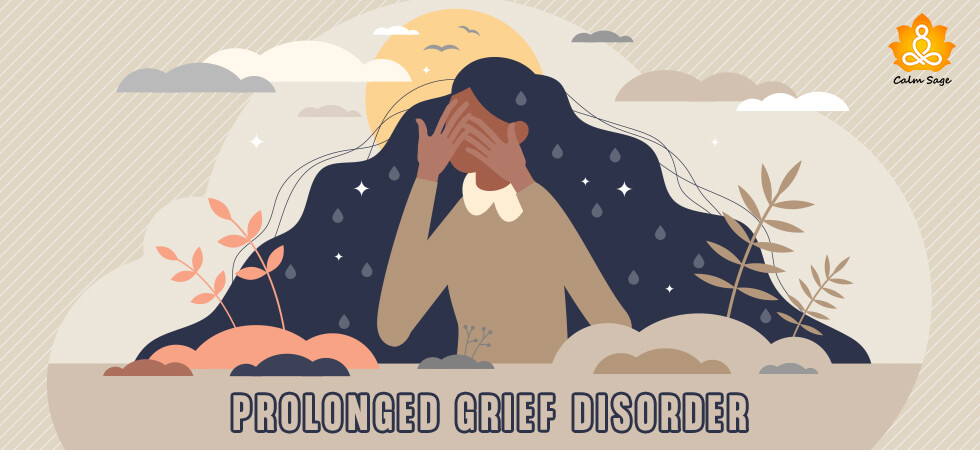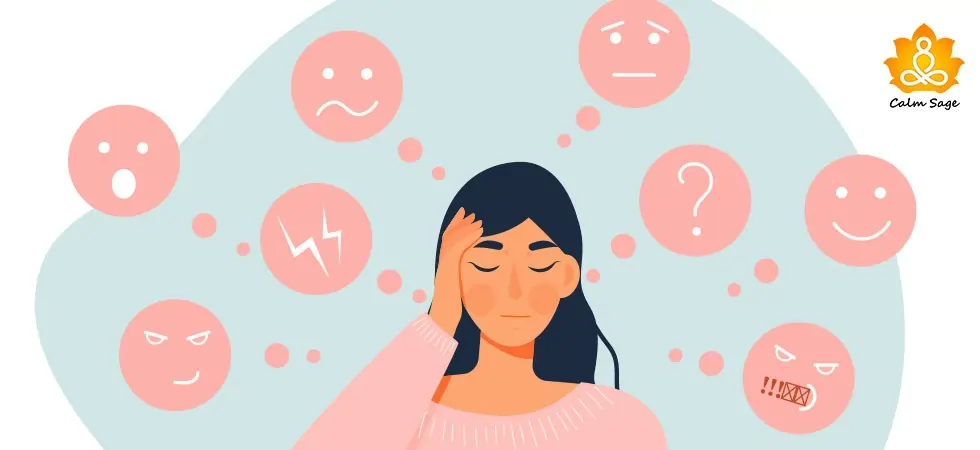Understanding Prolonged Grief Disorder | Symptoms & Prevention

Grief is something we have all experienced. Dealing with a painful event in life is a tough job. Each one of us has a different way of dealing with grief. It may take time but we get over it and try to move on.
Imagine not being able to move on from the grief. Painful, right? There are some people who find it really hard to move on. The grief stays with them for a long time. It starts affecting your physical and mental health.
The shock of losing a loved one to death is unsettling. When it comes to prolonged grief you are not able to recover from the shock. There is disbelief in you wherein you can’t comprehend the absence of your loved one.
This kind of grief can turn into a pathological condition in no time. Let’s see what it is…
What is Prolonged Grief Disorder (PGD)
PGD is a syndrome where grief overpowers an individual. It mostly happens to people dealing with the death of a loved one. Losing a loved one is already so tough. Imagine living with that grief!
People with PGD are so disheartened by the loss that their life starts to seem useless to them. They can’t live without the diseased person. It becomes very difficult for them to accept reality.
PGD is seen in almost 10% of people dealing with bereavement. Their entire focus is on the loss and nothing else. There is a lot of rumination and self-identity & purpose seems lost. In fact such people begin to believe that there is no source of happiness left in their life.
Long story short, in prolonged grief disorder, grief remains with you for a very, very long time.
Also read: 7+ Types of Grief That We All Experience
Read along to find out how you can identify prolonged grief disorder…
Symptoms of Prolonged Grief Disorder
PGD can be very confusing in the beginning. Because it’s obvious that there are going to be similarities in symptoms between normal grief and prolonged grief. One of the key differences between the two is that symptoms of normal grief begin to fade after 2 to 3 months. In case of prolonged grief, symptoms stay for a long, long time.
Let’s have a look at the symptoms…
- Intense pain and sorrow
- Rumination of the loss
- Difficulty accepting death
- Lack of trust (in others)
- Intense focus on loss
- Detached and numb towards life
- Losing interest in an enjoyable aspect of life
- Persistent longing for the loved one
- Have trouble functioning normally (routine)
- Social isolation
- Feeling of guilt and shame
- Behave the you could have prevented death
- Wanting to die with or in place of the other
Now, these symptoms might look very similar to the basic grief you might experience. What you have to keep in mind is the time and intensity of these symptoms.
Watch this to know more about grief How To Deal with Grief : Life Kit By Mental Health Expert!
The diagnostic criteria for prolonged grief disorder according to ICD – 11 is:
A. Death of a close other
B. Yearning for the deceased daily or to a disabling degree
C. Five or more of the following daily or to a disabling degree: significant degree for at least 12 months after the death:
- Confusion about one’s role in life or diminished sense of self
- Difficulty accepting the loss
- Avoidance of reminders of the reality of the loss
- Inability to trust others since the loss
- Bitterness or anger related to the loss
- Difficulty moving on with life (e.g., making new friends, pursuing interests)
- Emotional numbness since the loss
- Feeling that life is unfulfilling, empty, or meaningless since the loss
- Feeling stunned, dazed, or shocked by the loss
D. At least 6 months have passed since the death
E. The disturbance causes clinically significant impairment in social, occupational, or other important areas of functioning
F. The disturbance is not better accounted for by major depressive disorder, generalized anxiety disorder, or posttraumatic stress disorder.
Not all are vulnerable to PGD, let’s see who is more likely to develop prolonged grief disorder…
What Can Cause Someone to Develop Prolonged Grief Disorder?
Like I said before, not all people are vulnerable to prolonged grief. There are certain specific situations that can lead to PGD. Let’s look at who and when you can be more vulnerable to prolonged grief…
- In case of death of your child
- When you use someone you are dependent on
- Past experience of mental health issues like PTSD, depression, or separation anxiety
- Abuse or neglect during childhood
- The unexpected death of loved one
- Murder/suicide of loved one
- Presence of major stressors in life
Anybody can have it but these situations increase the chances of developing prolonged grief disorder. These are not the only causes, they are the most prominent causes.
Also read: What Is Disenfranchised Grief? Examples, Symptoms & How To Cope With Disenfranchised Grief
How to Prevent Prolonged Grief Disorder from Developing?
Although we can’t escape mental health-related issues, we can reduce the intensity and struggle. Here’s how to do it…
- Counseling: Asking for help will only benefit you. Professional counseling can help you get a deeper understanding of your condition. Bereavement counseling can help in preventing PGD
- Expressing/talking about your feelings: Talking about your grief and feelings can help you get it out of your system. This way you will not feel stuck in that sadness.
- Seek support: finding a support group can be very, very helpful. If not, that support from friends and family can also help you feel better.
Other things like therapies, meditation, mindfulness, etc. can also help you deal with prolonged grief.
Well, this was all about prolonged grief disorder! I hope this article provided you with all the information you were looking for.
Take care of your grieving friends and family. Give them the support they deserve!
You can also connect with us on all social media channels.
Thanks for reading!
Take care. Stay safe.




















